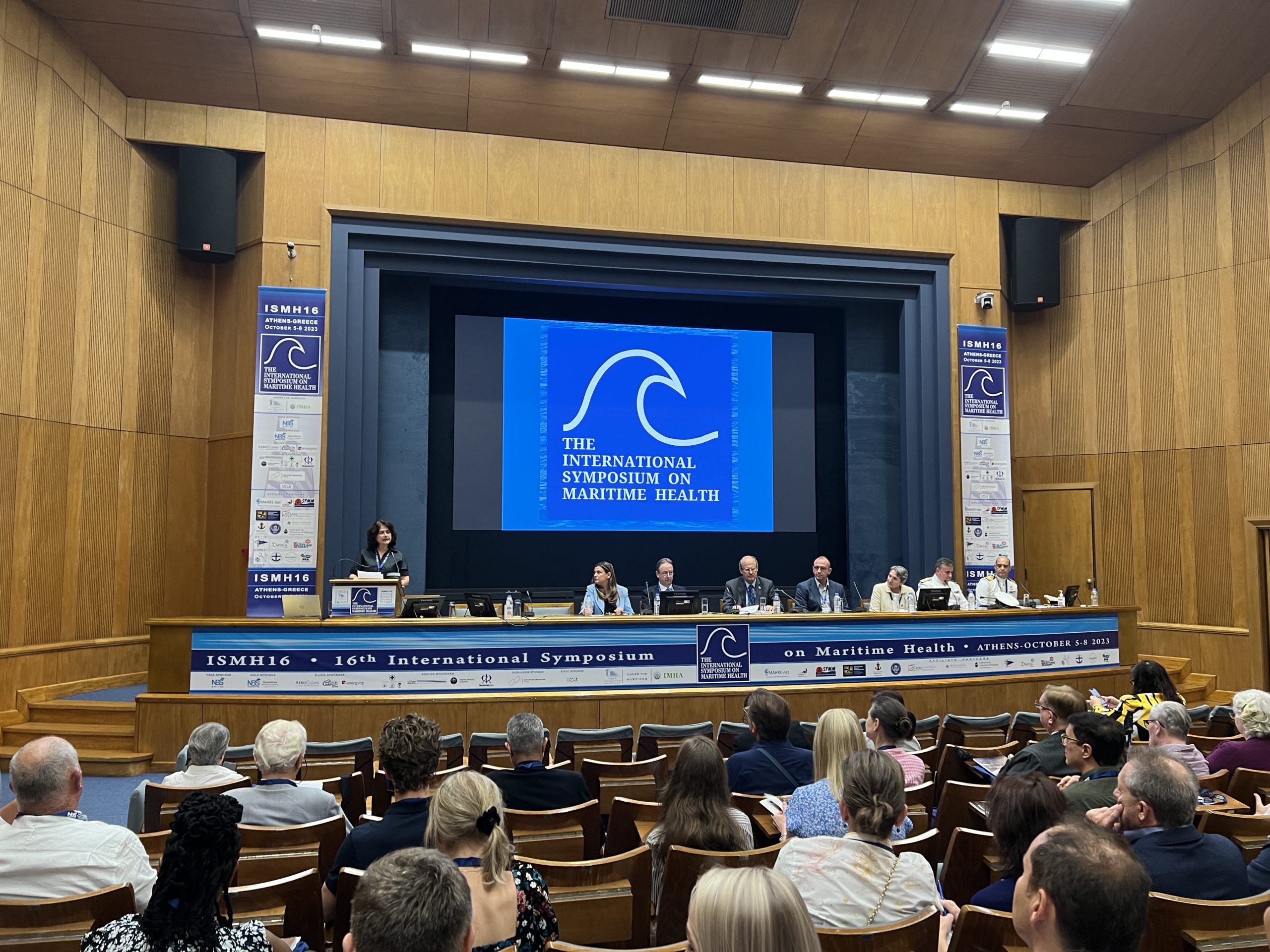Photo: Ship Portrait: Challenge Phoenix. Louis Vest. Flickr.
By Rev. Mark Lawson-Jones, Port Chaplain – South Wales, Mission to Seafarers
’That’s Life’
Eventually we discover that people will let us down, they will promise things they won’t deliver. You might be thinking this is a rather pessimistic way to start an article, you might be right. I suppose it’s important to be a realist in all things, it helps to guard yourself against some of the ‘difficult to manage’ things in life. The older I get, the more aware I am of what I’ve learned, and the cost of that knowledge. I can see how some things have been painful in life, and with a degree of regret I can see how I’ve also caused upset to others along the way.
Driving between ports in South Wales, doing my job as a chaplain for the Mission to Seafarers, I get quite some time to reflect on the interactions I have with seafarers. Of course, there are the practical reflections about how I’m going to ensure I have the right information, a good schedule and resources to help them. I can’t help thinking about responses they give me in everyday situations and how beyond cultural differences, I feel that wherever you might call home, whatever religion or culture you have and what you value in life, there are some global truths which speak to all of us. One of those truths is that when people break promises it’s painful. My journey to this rather depressing destination started when I visited a ship in one of the ports in South Wales.
The second engineer of a vessel was signing off at the next port, when we started to talk, I could see that he was anxious. “What can I do to help?” I asked. He eventually told me that he had been unable to purchase a present for his young son and wife. He was concerned that they might both believe he didn’t care about them, he had been away for nearly a year. Taking home a gift meant more than the mere gift itself, it was a physical sign that he had been thinking of them. This contract had been difficult, the speed of discharging and loading the vessel meant that he hadn’t been ashore for two months, even though he had been told it wouldn’t be difficult to enjoy lots of shore leave. For him, like many crew, the reality had proved to be different to the promises.
In the small and untidy ship’s office, surrounded by dozens of folders containing the necessary documents and a ten year old desktop computer, bolted to the desk to stop it from falling off and smashing to pieces on one of the more choppy voyages, a conversation began which lasted around half an hour. The details of this aren’t important, it consisted of two people trying to work out what sort of gifts would be required. I didn’t know what his family might like, and my new seafarer friend needed to be completely satisfied that the gifts wouldn’t seem like an afterthought, a hastily purchased token like flowers from a petrol station wouldn’t work for him nor them.
I said “I’ll be back before you sail”. He offered me money for the gifts he wished me to buy. I didn’t understand the relevance of this at the time, however I understand now. He didn’t believe I’d return, he thought I’d let him down, so if he gave me money there was a better chance I wouldn’t forget him, and return with the gifts. To me, it seemed more sensible to give him a receipt on my return, then he could pay the correct amount.
As I returned to the ship, without words, I was ushered into the ship’s office. The seafarer took the presents from me and inspected each item closely. He looked me in the eye and thanked me. The sort of ‘thank you’ that really made you feel as though something good had been transacted, a ‘thank you’, not just offered as good manners, one which precedes an exclamation mark, not a period or a comma. I don’t think he believed I’d keep my promise and return. Leaving the ship, the noise of the machinery was deafening, the dust seemed to dance in the wind. The steel-grey sky would keep its’ promise of bringing a torrential downpour upon the industrial landscape devoid of all life, greenery and brightness.
Keeping promises is incredibly important because it takes a lot of energy to deal with being ‘let down’, most of us have no useful tools for helping us deal with broken promises, more importantly when it happens to us, we just file it away in the bin which just makes life in general seem a little less satisfying. Our insights into humanity are what help us deal with life when it is challenging, if all we can think of are bad examples, then it is difficult to rise above new challenges that come.
How do we explain the disappointment of someone ‘forgetting’ a promise made to us? I remember telling my own children that ‘people are awful sometimes’ in a desperate attempt not to slip into the mistake of saying ‘trust no one’. It is no surprise that people of faith are naturally drawn to the promises of God, even though sometimes it takes some theological gymnastics to explain why bad things still happen. Who wouldn’t want God to be faithful, unchanging, unresting, one who keeps promises made?
If we propose to work in a therapeutic welfare role as part of a faith-based organisation, then this is the standard. Our faithfulness to those we serve is evidence of our faith. This faithfulness means that we must have a good memory to keep the promises we make. Mistakes will be made, we all make them and sometimes we just forget. Sometimes, life overtakes us and we merely become unable to take that trip, make that call or find time to meet the commitments we have made. The more we try to help, the more we risk letting people down.
Promises made to seafarers are especially important because few enjoy any degree of certainty in their jobs. Many will not know exactly when their contract will actually finish and when they can return home, they don’t know where their next port will be or when they will arrive. Others will not know when they can speak with loved ones again because Wi-Fi is rarely available. Some won’t even know when they will be able to leave the ship for some shore-leave. To have someone make a promise and keep it is special and life-giving for seafarers. In a changing world, chaplains and ship welfare visitors need to be an anchor, a fixed point.
International seafarers seem to have an acute sense of whether they can trust a person they are speaking with. Sadly, this is almost certainly due to the times they have been let down, the hours reflecting on the lack of certainties in their lives. It must seem that they are spectators in life, with little ability to change the realities of their lived experience. If your wellbeing isn’t dependent on the promises of others you are blessed indeed, I don’t know of anyone who can honestly say this is the case. We all need to rely on others in some way or another.
I hope and pray the seafarer’s family enjoyed the gifts; I would like to think they had a wonderful time together before the he went to sea again. I will never know; it is just part of the work for chaplains and ship welfare visitors. We should be content that it is enough to step into the reality of a seafarer’s life, to serve, to be a point of certainty, in this sometimes difficult and sad world.
There is a saying, which goes something like ‘Don’t ever promise more than you can deliver, but always deliver more than you promise’.





